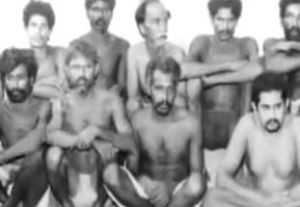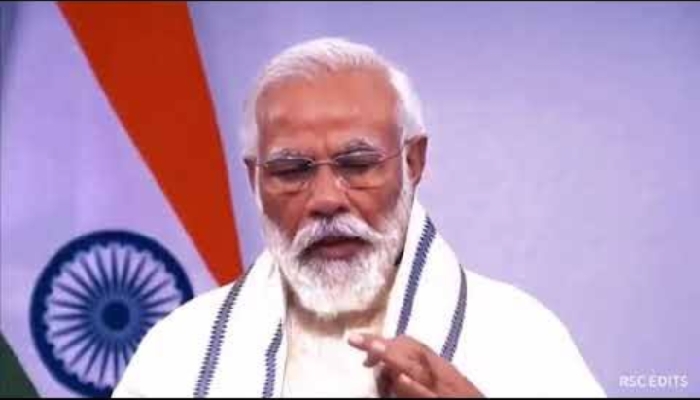
New Delhi, Feb 15: The Union home ministry is learnt to have recommended rejection of mercy petitions in five more cases as it seeks to speedily dispose of all the cases of death row convicts pending with it.
Seeking to have a swift closure on the cases of those who have filed mercy pleas against capital punishment awarded to them, the ministry has sent all the pending files to President Pranab Mukherjee for a final call.
Sources said that seven cases involving the fate of nine people have been sent to the President, with the ministry recommending rejection of the mercy pleas in five cases. It has and left the two remaining ones open for commutation of death sentence to life imprisonment with the rider that the life term means jail for the entire life of the convict and not just 20 years or 14 years in prison.
The President had sent the files to Union home minister Sushilkumar Shinde on October 30 for his review and opinion. Shinde sent the files back within 100 days in a major shift from the pattern where decisions on mercy petitions were indefinitely delayed with files shuttling between the home ministry and the Rashtrapati Bhavan.
Though the case-wise recommendations for convicts were not known as both the home ministry and Rashtrapati Bhavan continue to remain tightlipped on mercy petition files, the seven cases relate to multiple murders, including one in which a rape convict out on bail killed five members of the victim's family.
While two files were sent to Rashtrapati Bhavan on February 9 (the day Parliament House attack case convict Afzal Guru was hanged), the remaining five files were dispatched last month.
The mercy files, which have been pending for years while moving to and fro between Rashtrapati Bhavan and the home ministry, saw unprecedented movement of late, resulting in two quick hangings (Ajmal Kasab and Afzal Guru) within less than three months. Mukherjee had rejected the mercy plea of Kasab on November 5, and Guru on February 3.
The files, which are now with President Mukherjee, include the longest pending case of Gurmeet Singh of Uttar Pradesh, who was convicted for killing 13 members of a family on August 17, 1986. The others cases are of Suresh and Ramji, also from UP, who were convicted for killing five members of their brother's family and Dharampal from Haryana, who had murdered five members of the family of a girl he had raped in 1993. He had murdered the family while on bail in the rape case.
The other cases are of Sonia, daughter of a former Haryana MLA, and her husband Sanjeev, who drugged and killed eight of her family in Hisar in 2001, including her parents. Sunder Singh from Uttarakhand is convicted for rape and murder on June 30, 1989, Jafar Ali from Uttar Pradesh who was convicted for killing wife and five daughter in 2002 and Praveen Kumar of Karnataka, convicted for killing four members of a family on February 23, 1994.
Mukherjee has so far disposed of mercy petitions of eight death row convicts in five cases.
The President has also rejected the mercy petitions of Saibanna Ningappa Natikar (Karnataka: convicted for killing wife and daughter) and mercy petitions of slain forest brigand Veerappan's associates Gnanaprakash, Simon, 'Meesai' Madaian and Pilavendran, who were sentenced to death for killing 22 police personnel in 1993.
However, the mercy petition of Atbir (Delhi), who was convicted for murder of his step-mother, step-sister and step-brother over property, was commuted to life imprisonment by the President.
Strained mercy:
1,455 persons awarded death penalty in India from 2001 to 2011
Sentences for 4,321 persons were commuted from death penalty to life imprisonment during the same period.
Highest number of death penalty was imposed in Uttar Pradesh (370) followed by Bihar (132), Maharashtra (125), Karnataka and Tamil Nadu (95 each), Madhya Pradesh (87), Jharkhand (81), West Bengal (79), Delhi (71), Gujarat (57), Rajasthan (38), Kerala (34), Odisha (33), Haryana (31), Assam (21), Jammu & Kashmir (20), Punjab (19), Chhattisgarh (18), Uttarakhand (16), Andhra Pradesh (8), Meghalaya (6), Chandigarh and Daman & Diu (4 each), Manipur and Himachal Pradesh (3 each), Tripura and Pondicherry (2 each) and Goa (1)
No death penalty imposed in Arunachal Pradesh, Mizoram, Nagaland and Sikkim and Union Territories of Andaman & Nicobar Islands, Dadra & Nagar Haveli and Lakshadweep\
Sentences of 4,321 persons were commuted from death penalty to life imprisonment in the country during 2001-11






Comments
Add new comment